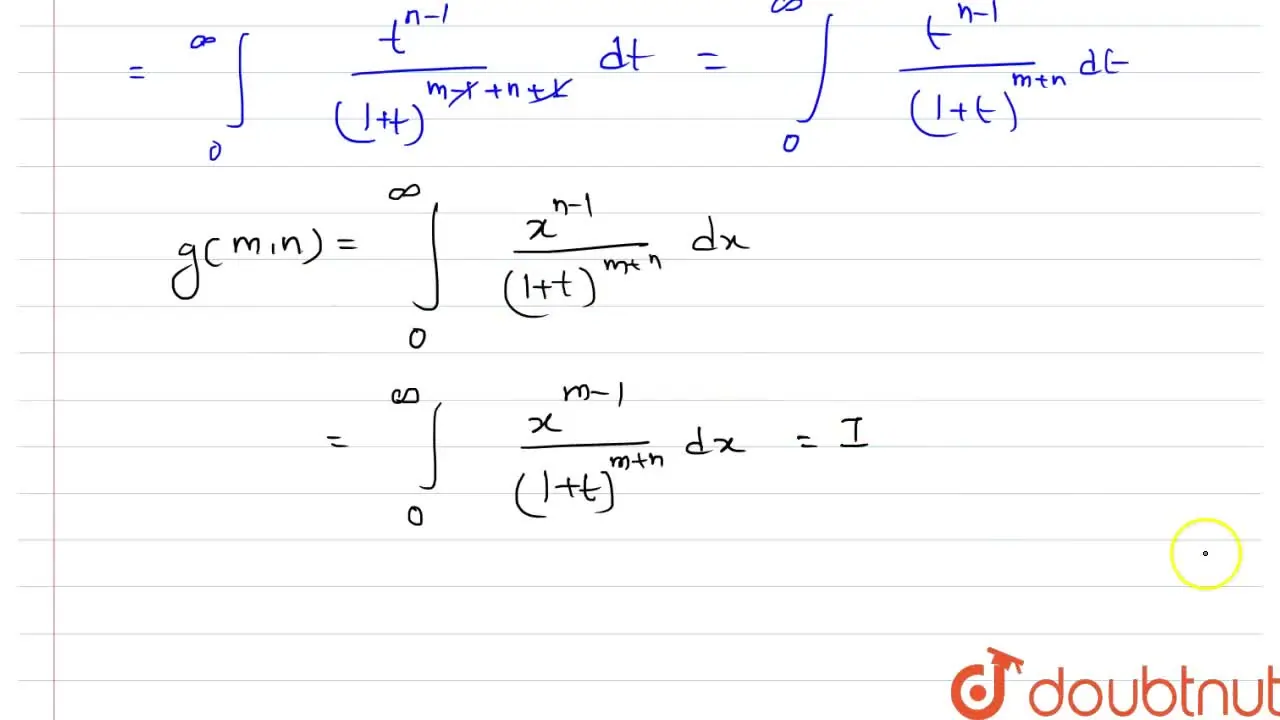Let m,n be two positive real numbers and define f(n)=∫∞0xn−1e−xdx and g(m,n)=∫10xm−1(1−x)n−1dx. It is known that f(n) for n>0 is finite and g(m,n)=g(n,m) for m,n>0. ∫10xm−1+xn−1(1+x)m+ndx=
A
(a) g(n,m)
B
(b) g(m−1,n+1)
C
(c) g(m−1,n−1)
D
(d) g(m+1,n−1)
Video Solution
Text Solution
The correct Answer is:A
I=∫10xm−1+xn−1(1+x)m+ndx
=∫10xm−1(1+x)m+1dx+∫10xn−1(1+x)m+ndx
=I1+I2
In I2, put x=1t, then I2=∫1∞1tn−1(1+1t)m+ndx
=∫∞1xm−1(1+x)m+ndx
∴ I=∫10xm−1(1+x)m+ndx+∫∞1xm−1(1+x)m+ndx
=∫∞0xm−1(1+x)m+ndx=g(m,n)
|
Updated on:21/07/2023
Similar Questions
Let m,n be two positive real numbers and define f(n)=∫∞0xn−1e−xdx and g(m,n)=∫10xm−1(1−m)n−1dx.
It is known that f(n) for n gt 0 is finite and g(m, n) = g(n, m) for m, n gt 0.
∫10xm(loge.1x)dx=View SolutionIf I(m,n)=∫10xm−1(1−x)n−1dx, then
View SolutionEvaluate : ∫10x(1−x)ndx
View SolutionIf Im=∫∞0e−xxn−1dx,then∫∞0e−λxxn−1dx
View SolutionEvaluate ∫10((log(1x))n−1dx.
View SolutionIf Im,n=∫10xm(lnx)ndx then Im,n is also equal to
View SolutionLet In=∫10xn(tan1x)dx,n∈N, then
View SolutionIf =∫10xne−xdxforn∈NthenIn−nIn−1=
View SolutionLet In=∫10(1−x3)ndx,(n∈N) then
View SolutionIf n>1. Evaluate ∫∞0dx(x+√1+x2)n
View Solution


